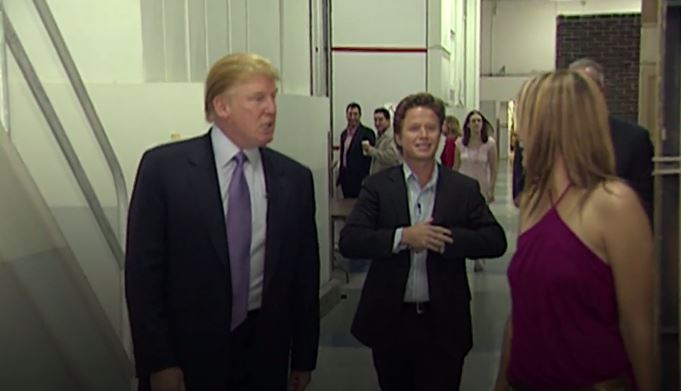What an exciting time to be an A.C.T. Legislative Assembly voter. Look at all the choices we have – neoliberalism to the left, neoliberalism to the right, neoliberalism everywhere in between.
Where is the ACT’s Jeremy Corbyn? Why is there not even one self proclaimed Bernie Sanders’ style democratic socialist among the 141 candidates?
Instead, we have 25 Labor candidates who dare not speak socialism’s name and the Greens who are neoliberals on bikes. The Sex Party has some decent social policies but erection stunts, a speedway, taxing the churches for charitable work and their lack of class analysis and working class structural support make me wary.
As the long term decline in Labor’s primary vote nationally (and I suspect locally) shows, working people are looking for alternatives. Unfortunately a genuine socialist left has not yet arisen to counter the rise of right wing populists, demagogues, racists and, frankly, nutters.
In Australia it was the Hawke Labor government which introduced neoliberalism and set in train the double helix dance of the Labor and L.N.P. with the beast. It did this through the Accord which oversaw the start of a process of wealth shifting from labour to capital unprecedented in our history, and all with the agreement of much of the trade union leadership.
The Accord gave that leadership greater control over members, and has resulted in a massive decline in strikes and other industrial action to near historic lows today. Record numbers of workers are now not in unions.
While our side has not fought, the bosses have waged an unremitting class war against us, so much so that the share of total factor income going to capital increased from 17% to 27% and labour’s share fell by about the same 10% amount, down to between 52 and 54%. Working class private debt has gone up massively.
What saved Australian capitalism and governments in the 2000s from the economic and political crises engulfing much of Europe and North America was the mining boom. That ended here in around 2012/13 and the consequences are beginning to play out in Australia with ongoing and increasing government attacks on health, education and social welfare spending as well as real wage cuts, sacking public servants and holding down their pay.
As the long recession of Western capitalism flows into Australia the class lines could be drawn more clearly and provoke a response, although neither Malcolm Turnbull nor Bill Shorten seem equipped intellectually or politically with the ability or will to deeply cut the living standards and social wage of workers for the benefit of capital. Instead both appear to be adopting slightly different versions of the scalpel rather than the hatchet. The time will come when capital demands their man or woman yield the axe. Will our side be ready and able to fight back?
The ALP has moved from being a capitalist workers’ party to a CAPITALIST workers’ party, and is well on the way to becoming a capitalist party. As a consequence Labor over time has been losing votes and members, reinforcing the conservatism of the party. The Greens’ history, structure, membership base and politics strongly suggest it cannot fill that working class electoral void.
The Barr Labor government is a managerial version of the free market Liberals. The Greens seem to think that slugging the working class is the way to address climate change and pay for their relatively minor social measures.
These come together in the light rail project which under the guise of better, cleaner public transport looks more like a plan to deliver inadequate transport at exorbitant cost to ten percent of the population while the rest of us pay for it. The real beneficiaries look to be property developers and real estate agents and a few extra building worker jobs. Building public housing for the homeless and poor would provide more jobs and at less cost.
So where is the politician of the left at these forthcoming ACT elections who will stand up and say we should tax the rich to fund a public housing program that actually houses the homeless? Where is the person who argues for taxing the rich and capital to fund rapid bus transport plan that floods the city with free to use electric powered buses. Where is the left wing arguing for such taxes to introduce a real Gonski into ACT public schools?
For example a super profits tax on the big four banks, at a rate of 40 cents in the dollar on 2% of their profits, would, by my back of the envelope calculations, yield about $250 million. What about rent and petrol price control? Imposing a small fee on the gross revenue of those big businesses that pay no income tax (about 38% of them) who are here in Canberra to continue operating could yield up to $100 million. On and on the suggestions could go.
As a first step a genuine left wing government in the ACT would negotiate a treaty. It would tax the top ten percent of income earners and capital to pay the rent to the local Aboriginal people whose ongoing genocide the ACT is built on.
I cannot vote for the Liberals, the class enemy. I will probably hold my nose and vote Sex Party then Greens then Labor, more to deliver a message to Labor and the Greens than as any endorsement of their anti-working class neoliberal policies.
I am comforted by the reality that voting changes little and it is struggles in the workplace and on the streets that can force governments to adopt policies that benefit workers and the less well off in our society. We on the left must continue to focus on that rather than the farce that is parliamentary politics.
I am a long term Canberra resident and member of small socialist group Solidarity.











